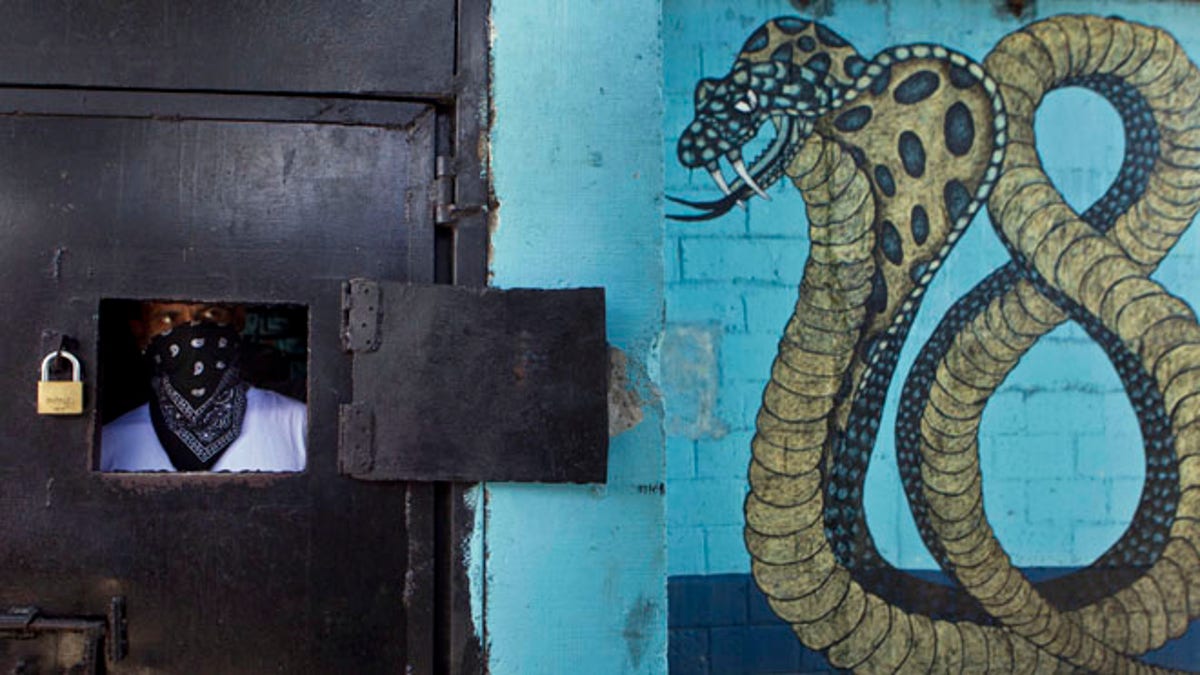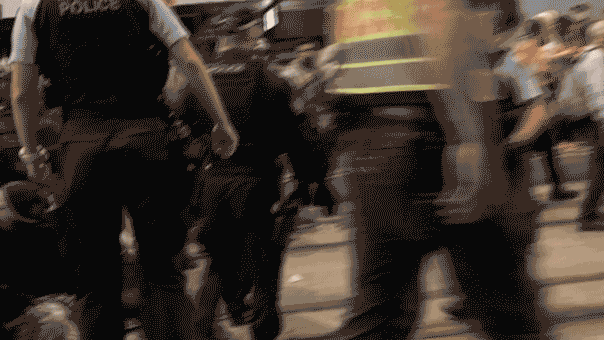
May 28, 2013: A masked member of the 18th Street gang peers from behind a window of a prison door as other gang members give a press conference inside the San Pedro Sula prison in Honduras. (AP)
SAN PEDRO SULA, Honduras – Honduras' two biggest and most dangerous street gangs declared a truce Tuesday, offering to give the government peace in exchange for rehabilitation and jobs.
A spokesman for the Mara Salvatrucha gang, identified only as Marco, said the gang will commit to zero violence and zero crime in the streets as a first-step show of good faith. He spoke to reporters from a prison cell in San Pedro Sula, the Central American country's northern business capital and one of the most violent cities in the world.
"Our truce is with God, society and authorities. We ask society and authorities to forgive us for the damage we have done," Marco said. "I want my son to be a doctor or a cameraman, not a gangster."
Minutes later, a leader of the rival 18th Street gang gave a separate news conference from another prison cell, saying his gang offers the same as the Mara Salvatrucha, "if the government will listen." His face was covered by a scarf and he didn't give his name.
The truce, patterned after one between the same two gangs in neighboring El Salvador, has been worked out over the last eight months with mediation by Roman Catholic Bishop Romulo Emiliani of San Pedro Sula.
President Porfirio Lobo said Monday that he was backing efforts by the church leader, saying he personally offered his support.
Emiliani said last week when announcing the impending truce that the gangs need government help to break away from their criminal lives, including extorting money from businesses to finance their war with each other. He said authorities should try to turn Honduras' prisons into rehabilitation centers.
In El Salvador, authorities say the truce that began last year has sharply lowered the number of violent deaths. According to reports from Salvadoran public security authorities, homicides have dropped about 52 percent in the 14 months of the truce.
With an as many as 91 homicides per 100,000 people, Honduras is often called the world's most violent country.
Adam Blackwell, the Organization of American States' ambassador for security affairs, said the dialogue with the Honduran gangs started when he and Emiliani visited prisons in San Pedro Sula and Tegucigalpa and met with members of both groups.
Both gangs have their roots in Southern California, where young men seeking refuge from Central America's civil wars formed violent gangs on the streets of Los Angeles and its suburbs in the 1980s. Gang members later deported from the U.S. re-established their violent organizations in their native countries of El Salvador, Guatemala and Honduras. Many of the leaders operate from prison and direct illegal activities and crime among members on the streets.
The two gang leaders who talked with journalists emphasized that so many young men go into the gangs because there are no alternatives, and they emphasized the need for legitimate work.
"We ask the government to help us so our young people learn a trade and don't turn out like us," Marco said.








































